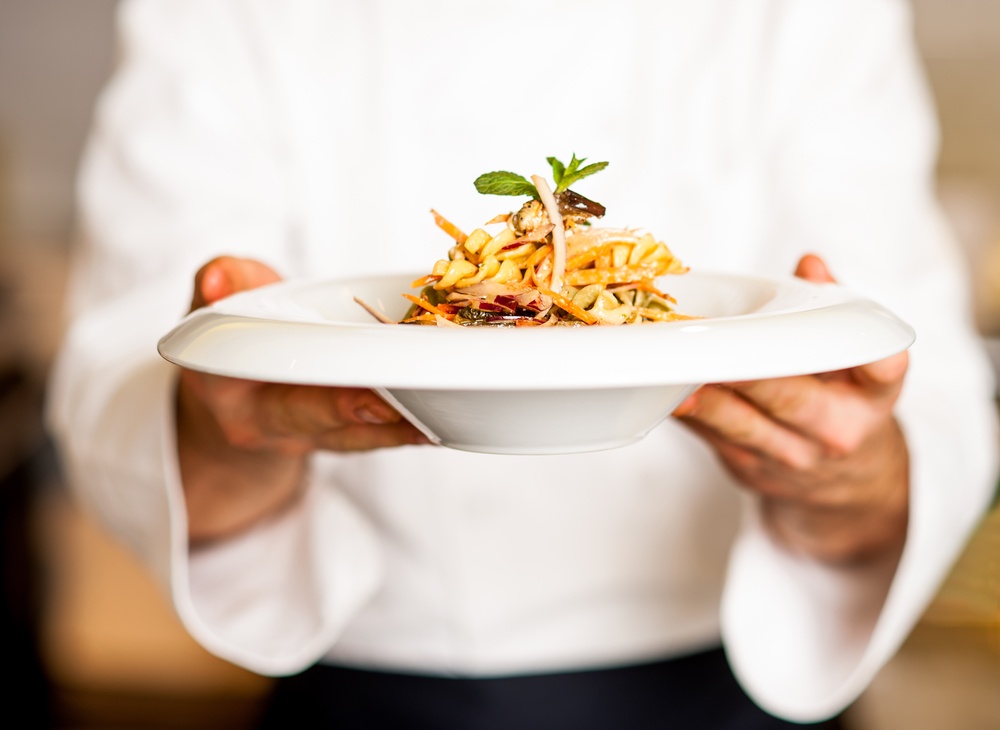Too often, kitchen staff in both commercial and domestic kitchens use the wrong utensils for food preparation. There’s a reason why utensils are designed the way they are to maximise efficiency. Even the most experienced chefs can benefit from refreshing their knowledge about which utensils should be used during food preparation.
Having all the right kitchen utensils in place will make your restaurant kitchen work quickly and flow well. When someone uses the wrong tool, another staff member might waste time hunting it down. That’s why it’s crucial for everyone to understand what should be readily available for each prep task.
To keep your kitchen running smoothly, keep a list of essential utensils posted on the wall, to help new kitchen staff members to know what utensils they should be using. More importantly, stock plenty of duplicates, especially if you cater for large groups. You don’t want someone searching for your only colander when it’s hiding in soapy water or going through the ware washer.
At Alliance, we stock every type of kitchen utensil imaginable, in various finishes and materials. All our products come from reputable brand names and are built to maximise your kitchen’s excellence and efficiency. In this guide, we’ll help your kitchen staff decipher which item should be used for which food preparation task, ensuring your kitchen runs seamlessly.


Which Material Is Best for Kitchen Utensils?
Material is vital to think about when investing in utensils for your kitchen. Here are the most common materials used for kitchen utensils, and their specific characteristics: Stainless Steel- Hardwearing and long-lasting if properly maintained
- Practical and doesn’t absorb flavours
- May scratch non-stick cookware
- Withstands wear and tears
- Ideal for rolling pins and chopping boards
- Doesn’t scratch pots and pans
- Not dishwasher safe, and can stain if not properly cared for
- Best for mixing bowls and boards
- Has a melting point so cannot be used in high-heat
- Silicone can be a good alternative for use at high temperatures
- Strong but breakable
- Stainless steel or plastic may be a better alternative for a safe kitchen
The 10 Utensils Every Kitchen Needs:
Every kitchen needs accurate measuring tools for precise cooking and baking. Measuring spoons and cups, clearly marked with their quantities, are essential for dry ingredients. For liquids, have measuring jugs which hold up to 2.2 litres. For larger quantities or more precise measurements, quality digital scales like the GenWare Heavy Duty Digital Scales are recommended. These tools will ensure consistency in your recipes and help avoid cooking mishaps. Keep an assortment of mixing bowls in your kitchen, small, medium and large, to accommodate different recipes. Stainless steel mixing bowls will last a lifetime, providing they are properly looked after. However, having bowls made from a variety of materials, like polypropylene, ceramic and plastic, ensures you have options for all mixing tasks. Having multiple bowls on hand means you’ll never have to pause a cooking process waiting for a bowl to become available. Chopping boards are fundamental for food preparation, but it’s crucial to use them correctly to prevent cross-contamination. You need separate boards for different food types – specific boards for meat and chicken (with grooves to catch juices), and others for fruits, vegetables, cheese, and fish. Wood boards are durable and will last for years with proper care, while plastic boards are excellent for easy cleaning. Consider colour-coded options to easily distinguish between boards for different food types. Proper labelling of boards can also help maintain food safety standards in your kitchen. While you’ll need a number of different knives for a variety of tasks, you should definitely have a few chef’s knives (sometimes referred to as a cook’s knife) in your collection. Chef’s knives can be used for many jobs, from chopping vegetables and slicing fruit, to cutting meat and poultry. Always keep your knives safely stored away in a knife block or magnetic knife rack to maintain their sharpness. Colour coded cook’s knives are also a good option to prevent any cross-contamination in a restaurant… While often overlooked, paring knives are another knife which should be readily available in any kitchen. Keep a few of these handy for jobs like chopping garlic or finely chopping herbs. A larger chef’s knife might be too cumbersome for these delicate tasks. Wooden spoons have endless uses and will last for years if looked after properly. They’re gentle on cookware, prevent burnt food, and won’t react with acidic food.There are plenty of wooden spoons on the Alliance website in varying lengths and strengths, from light duty to heavy duty.- Peelers
Summary

Article Name
The Kitchen Utensil Basics Your Kitchen Needs
Description
Too often, kitchen staff in both commercial and domestic kitchens use the wrong utensils for food preparation. There’s a reason why utensils are designed the way they are to maximise efficiency. Even the most experienced chefs can benefit from refreshing their knowledge about which utensils should be used during food preparation.
Author
Mark
Publisher Name
Alliance Online
Publisher Logo

